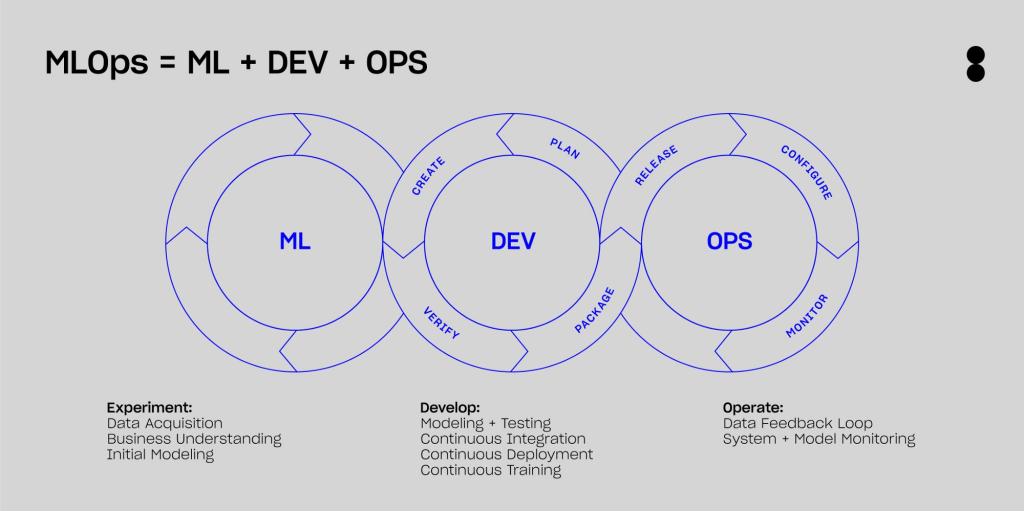
If you’re working in the world of software development, you’ve probably heard of DevOps. DevOps is all about streamlining the software development process, from coding to deployment. But what about MLOps? Machine learning operations, or MLOps for short, is a relatively new field that combines machine learning with DevOps principles. In this article, we’ll explore what MLOps is, why it matters, and how to use it in DevOps.
What is MLOps?
MLOps is a set of practices and tools for managing the lifecycle of machine learning models. It’s similar to DevOps in that it aims to streamline the development, deployment, and maintenance of software. However, MLOps is specifically focused on machine learning models, which have unique challenges and requirements.
Some of the key challenges of managing machine learning models include:
- Data management: Machine learning models require large amounts of data to train and test. This data needs to be stored, organized, and processed in a way that’s efficient and scalable.
- Model training: Training machine learning models is a resource-intensive process that can take hours or even days. This means that training needs to be automated and optimized to minimize costs and maximize accuracy.
- Model deployment: Deploying machine learning models is more complex than deploying traditional software. Models need to be deployed to production environments in a way that’s reliable, scalable, and secure.
- Model monitoring: Machine learning models are dynamic and can change over time. They need to be monitored and updated to ensure that they continue to perform accurately and effectively.
MLOps addresses these challenges by providing a framework for managing the entire lifecycle of machine learning models, from data preparation to deployment to monitoring and maintenance.
Why Does MLOps Matter?
MLOps is becoming increasingly important as machine learning becomes more widespread. Machine learning models are being used in everything from self-driving cars to medical diagnosis to fraud detection. These models are complex and require specialized skills to develop and deploy.
MLOps helps to bridge the gap between data science and software development. It allows data scientists to focus on developing and refining models, while software engineers can focus on deploying and maintaining those models in production environments. This collaboration is essential for developing effective machine learning solutions that can scale and evolve over time.
How to Use MLOps in DevOps?
Now that we’ve explored what MLOps is and why it matters, let’s take a look at how to use it in DevOps. Here are some key steps to follow:

Step 1: Define Your Problem
Before you start developing a machine learning model, you need to clearly define the problem you’re trying to solve. This means identifying the business problem, the data sources you’ll be using, and the metrics you’ll be using to measure success.
Step 2: Prepare Your Data
Once you’ve defined your problem, you need to prepare your data for machine learning. This involves cleaning and transforming the data, selecting the relevant features, and splitting the data into training and testing sets.
Step 3: Develop Your Model
With your data prepared, you can start developing your machine learning model. This involves selecting the appropriate algorithm, tuning the hyperparameters, and evaluating the model’s performance.
Step 4: Deploy Your Model
Once you’ve developed your model, you need to deploy it to a production environment. This involves packaging the model, creating a deployment pipeline, and integrating the model with other systems.
Step 5: Monitor and Maintain Your Model
Finally, once your model is deployed, you need to monitor its performance and maintain it over time. This involves tracking key metrics, identifying issues, and updating the model as needed.
Conclusion
MLOps is a powerful approach to managing the lifecycle of machine learning models. By following the steps outlined in this article, you can use MLOps principles to streamline your machine learning development process and deploy more effective solutions. Whether you’re working in a small startup or a large enterprise, MLOps can help you stay competitive and deliver value to your customers. So why not give it a try?